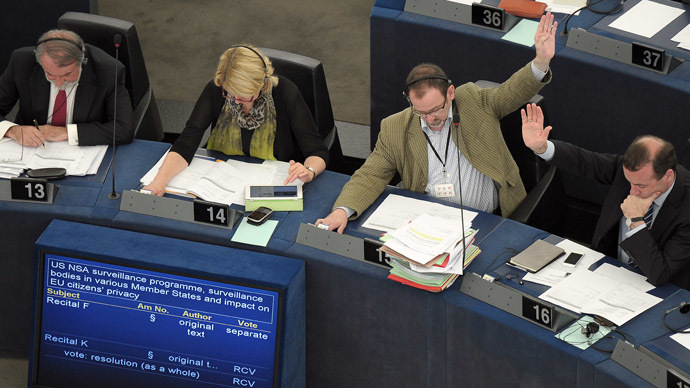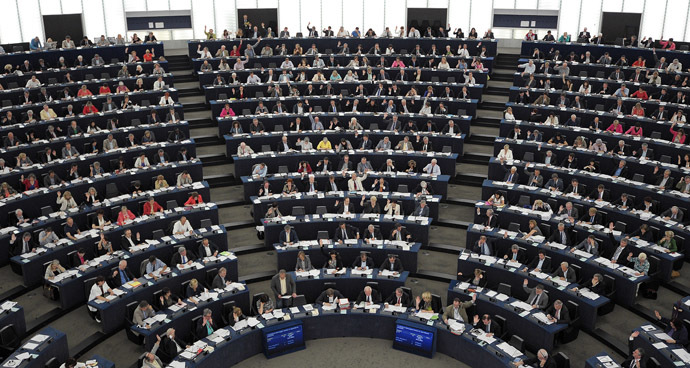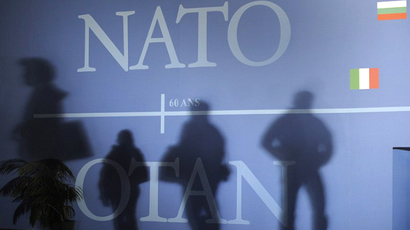EU Parliament votes to scrap US data-sharing deal unless Washington reveals spying practices

The European Parliament has called for the scrapping of two agreements granting the US access to European financial and travel data, unless Washington reveals the full extent of its spying on Europe.
The non-binding resolution, which was passed by 483-98 with 65
abstentions on Thursday, said the US should provide full
disclosure about its email and communications data. If Washington
fails to agree, two EU-US transatlantic information-sharing deals
could be revoked.
Both data-sharing deals – the Terrorist Finance Tracking Program
(TFTP) and Passenger Name Records (PNR) were agreed shortly after
the September 11, 2001 attacks, despite apprehension surrounding
whether or not they would give the US too much access to European
data.
The TFTP provides the US Treasury with European stored data on
international financial transfers, while the PNR covers data
provided by passengers when booking tickets and checking in on
flights. It then passes this information to the Department of
Homeland Security.
Plans to abandon the agreements must be approved by EU
governments and the bloc’s executive Commission. While their
approval looks highly unlikely, the vote served to prove the
simmering anger which exists within the assembly, caused by
recent NSA leaks.
Thursday’s vote comes ahead of next week’s talks on a potential
EU-US free trade deal. The deal will be negotiated by the
European Commission, but parliament can veto the final agreement.
Calls from some members of parliament to suspend the talks in
light of the NSA surveillance leaks were rejected.

France was originally among
those calling for the talks to be suspended. However, French
President Francois Hollande said on Wednesday that the meetings
could go ahead as planned, after the EU and US agreed to hold
talks next Monday to clarify the extent of Washington’s spying
operations.
The European Commission has asked the US to reveal how much data
it has access to, and for what purpose. A joint EU-US expert
group will be set up to discuss the matter.
Former surveillance contractor Edward Snowden revealed in May
that the US runs an electronic spy operation codenamed PRISM,
which he says collects data from European and other users of
Facebook, Google, Skype, and other US companies. Washington later
confirmed the existence of PRISM but did not provide details of
the program. In a separate leak, the US was accused of
eavesdropping on EU offices and officials.
Snowden has applied for asylum in 21 countries, seeking to evade
US jurisdiction, but has already received rejections from ten
nations. Venezuela and Bolivia say they are willing to consider
his applications once they are received.
Snowden is believed to be held up in Moscow’s Sheremetyevo
airport. The US has voided his passport, preventing him from
leaving the airport’s international transit zone.















